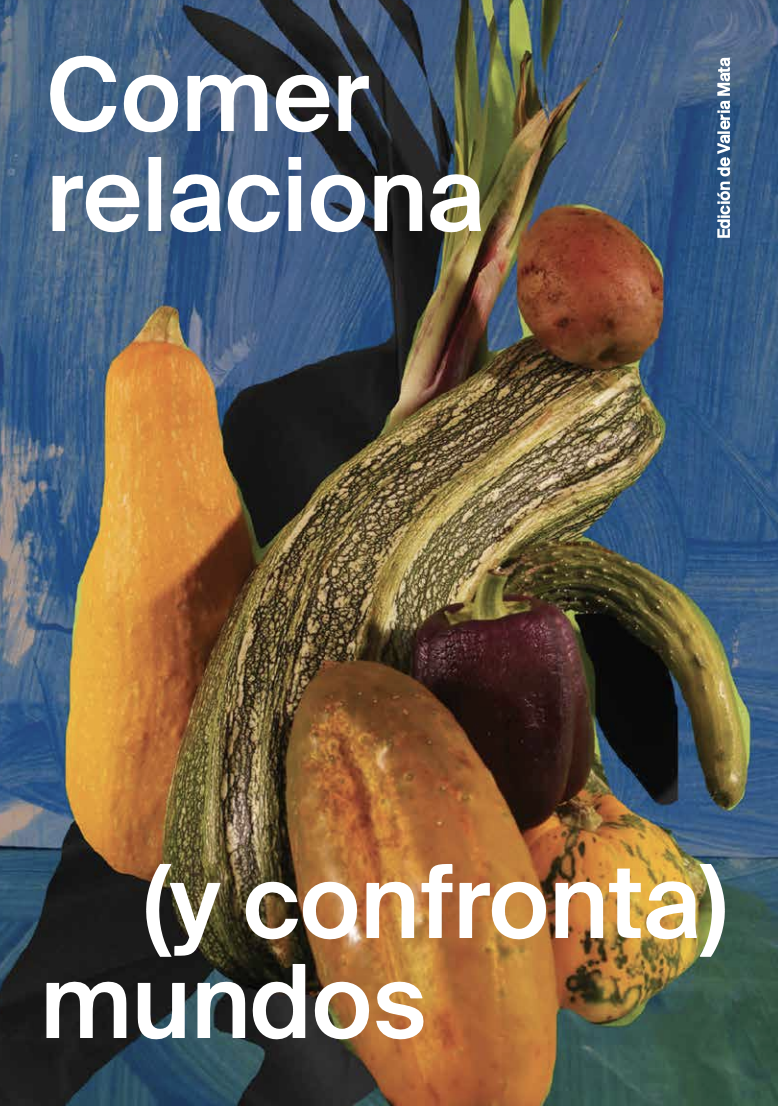Provisions
A duo show with Ryan Whelan
November 10th - December 7th 2018
1523b Webster St.
Oakland, CA 94612
A duo show with Ryan Whelan
November 10th - December 7th 2018
1523b Webster St.
Oakland, CA 94612
Provisions is a meditation on the transformative experience of food. The artists examine the disruptive power of providing for those you love, to slow down a busy life and make a meal. Integral to that examination are the places that give us provisions. Hernández and Whelan consider the unexamined journey of our food, with landmarks like roadside signs and market stalls, fields and baskets, on its way to the kitchen. The humble food object is the land, the sun, the farmer, the field, the market, the knife, and the plate; it contains the potential to love, to grow, and to transform.
Bajo la luz rosa del tianguis

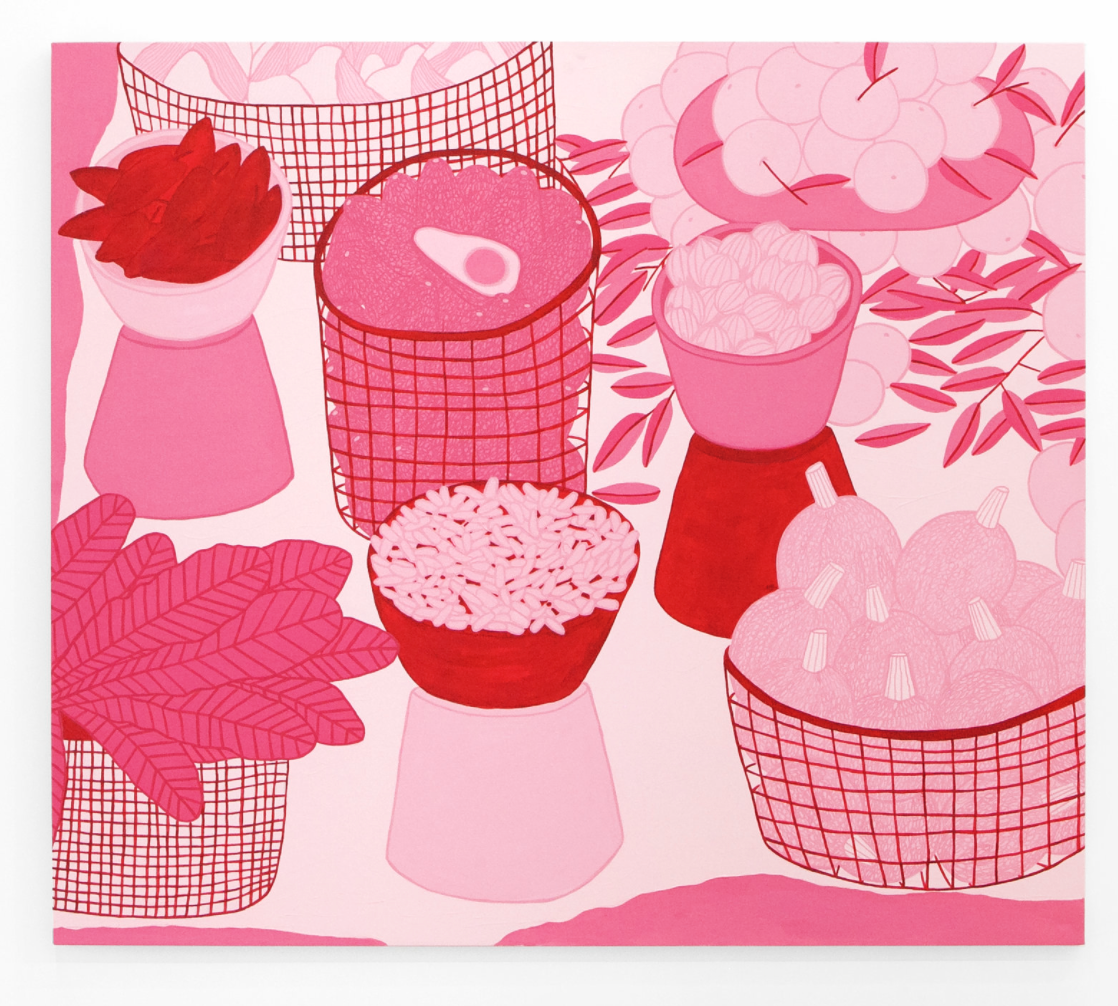


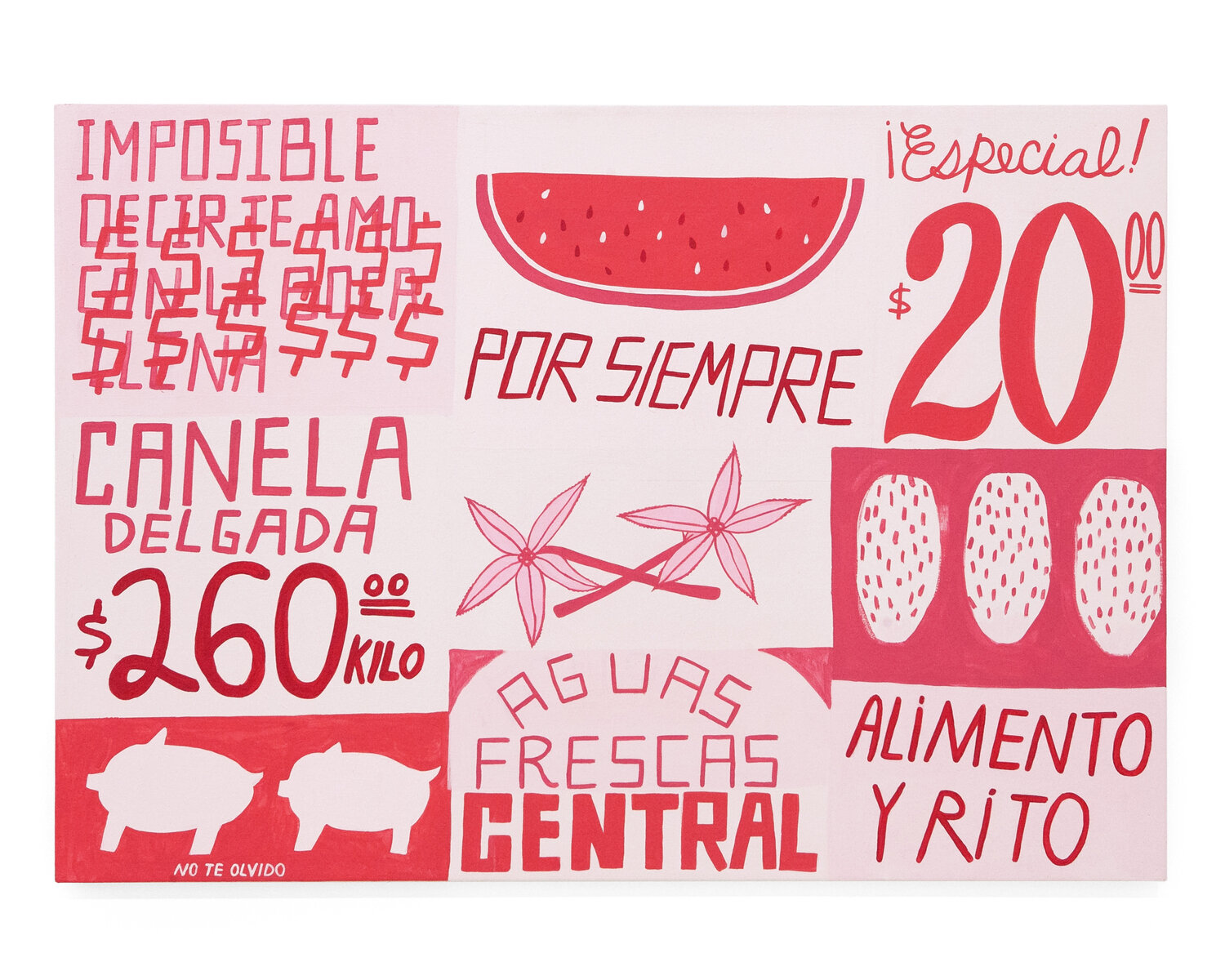
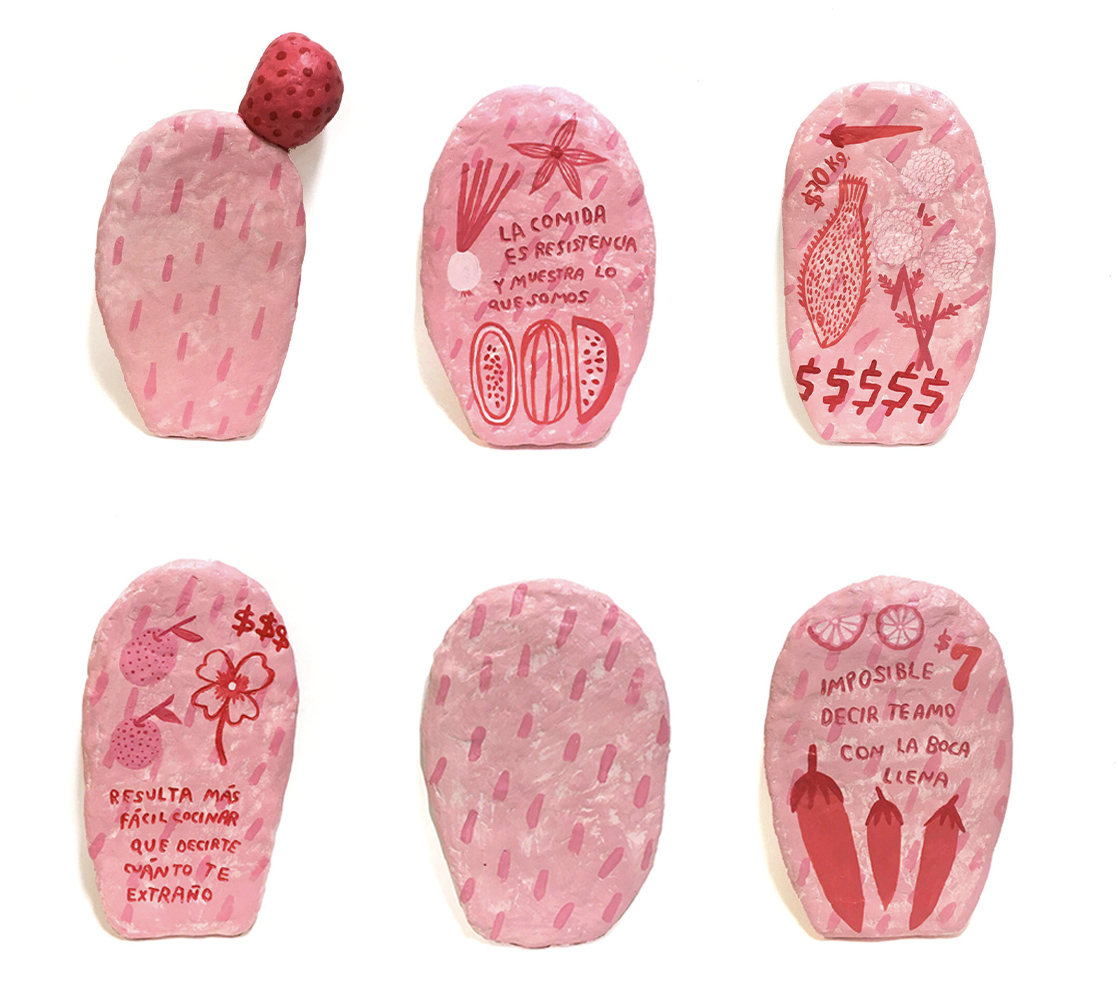
A tianguis is a small market, primarily one that is installed periodically on the street. They have deep ties to the pre-Hispanic Mexico and have become an essential element of its cultural identity. The itinerant markets travel around the neighborhoods popping up in the middle of the streets. They often take over entire city blocks and flood the streets with striking pink tents. Their spontaneous appearance is unique - they cut through the city’s pollution and chaos with their distinctive pink color that demands to be seen.
Stepping into the market within a bustling city yet so far removed, it becomes a self-contained world, a privilege to those who exist in that space. Oasis-like, Hernández’s market offers a shift in perspective, where food is an expression of artistry.
Stepping into the market within a bustling city yet so far removed, it becomes a self-contained world, a privilege to those who exist in that space. Oasis-like, Hernández’s market offers a shift in perspective, where food is an expression of artistry.
Provisions
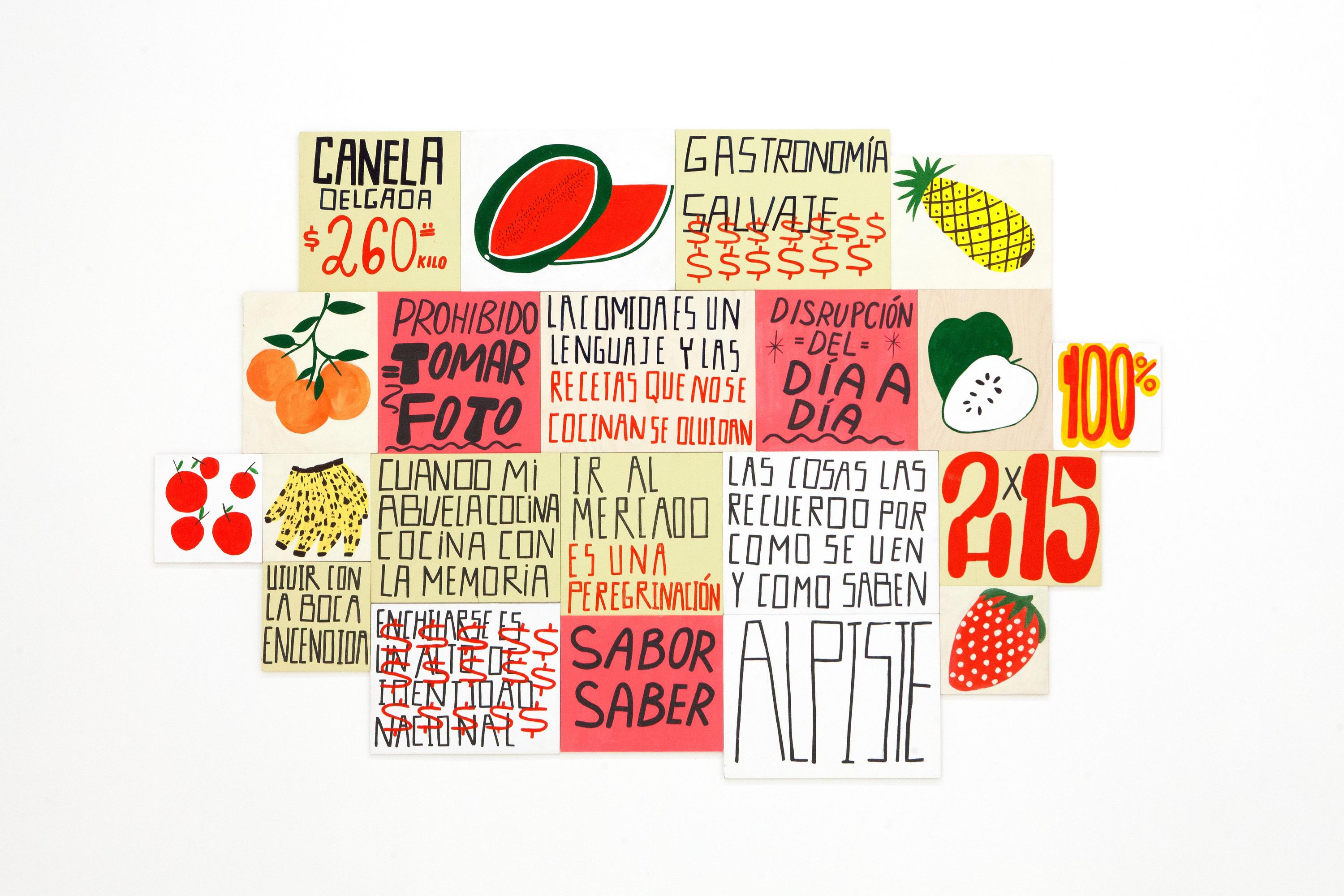
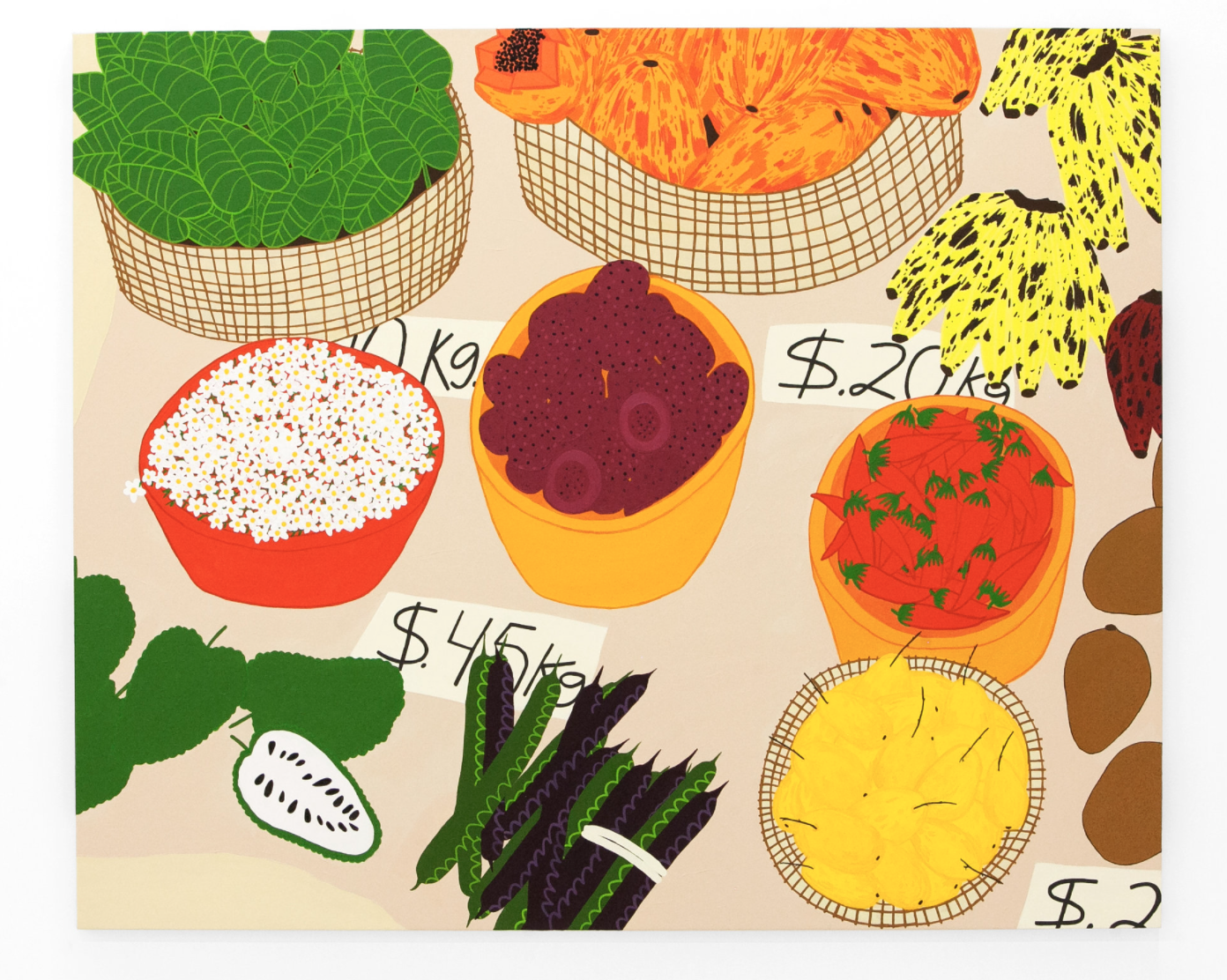
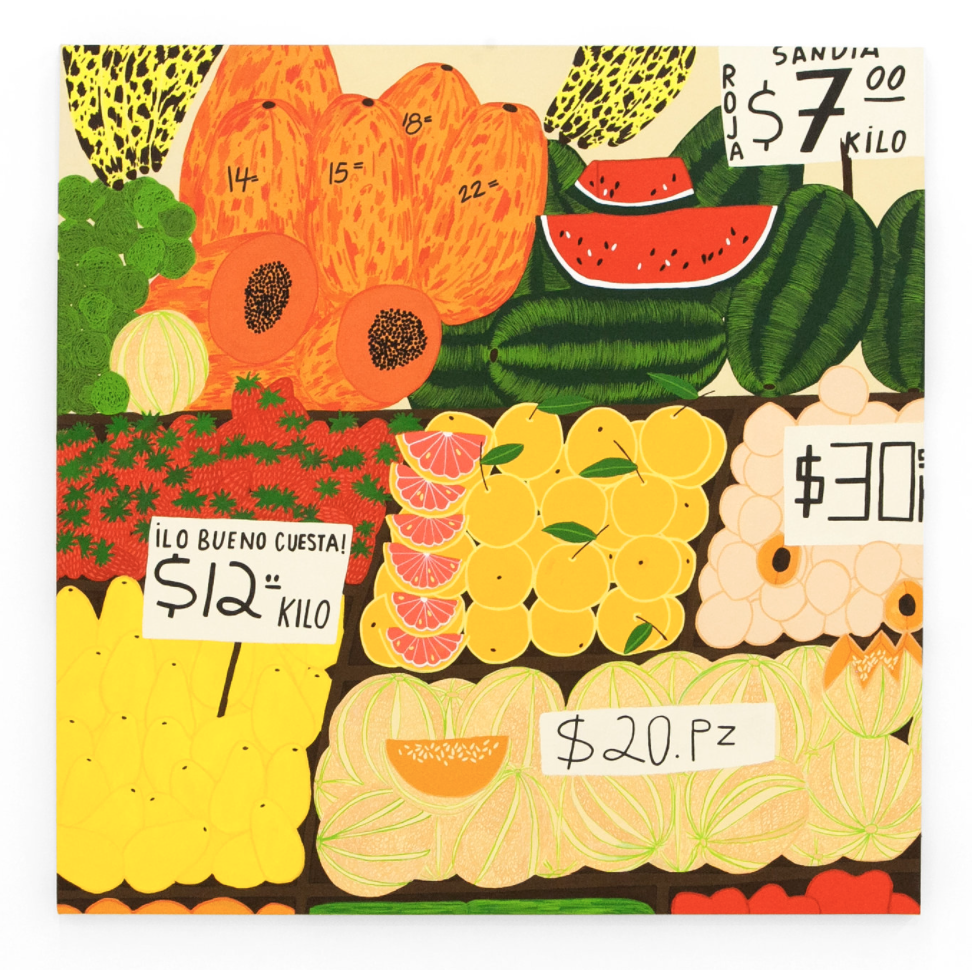
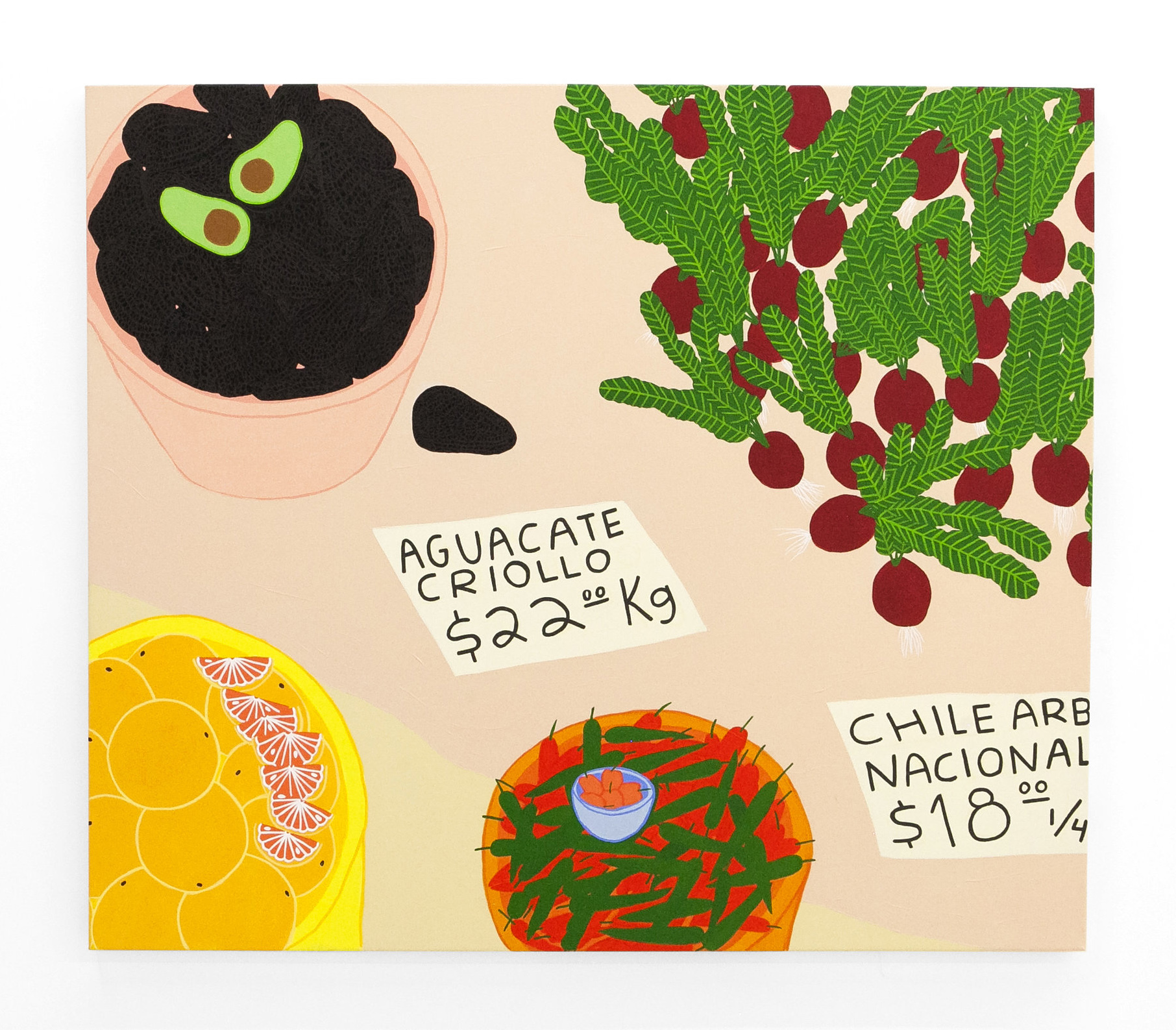
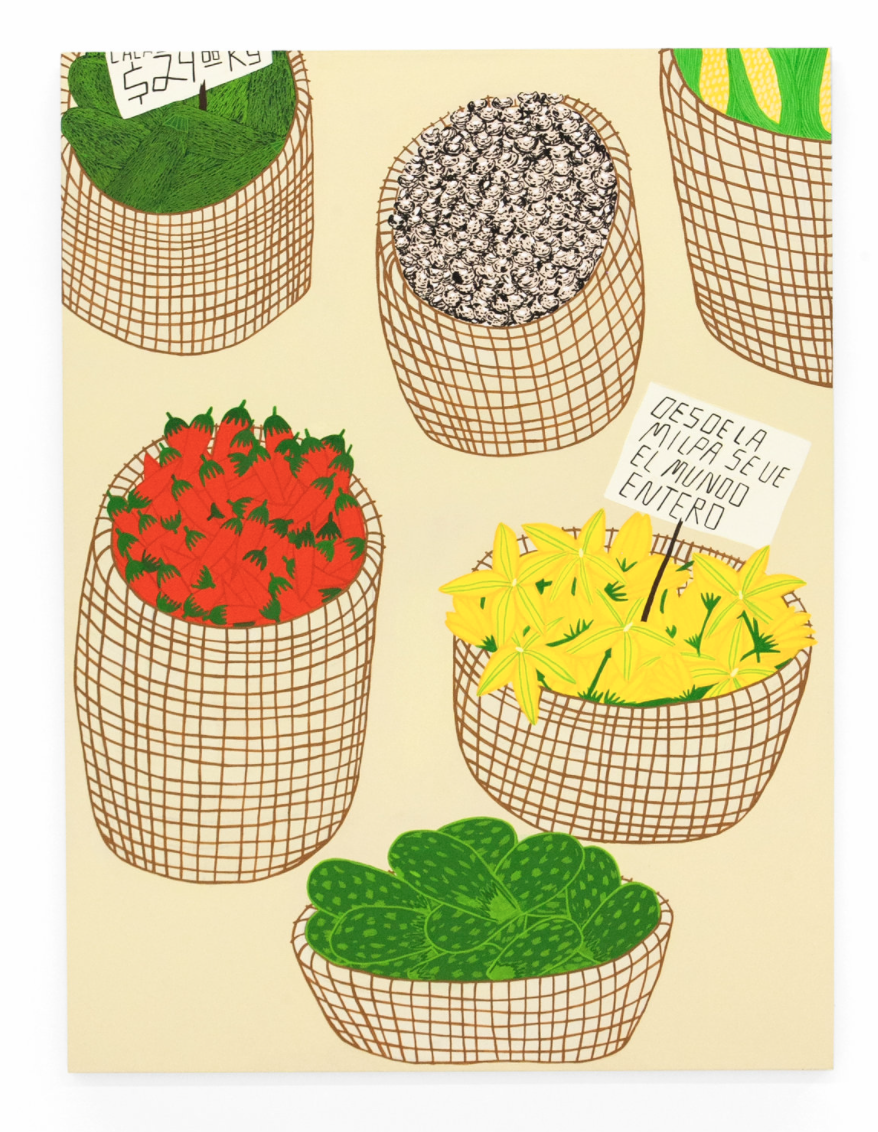

Walking through the market is a bizarre experience; it is full of stimulating sounds, contrasting smells, and teetering on visual overload. The vendor stalls take unique creative liberty in the display of their products - mangoes become cut shapes like roses pineapple slices stacked like bricks, and signs are less formal and transactional and more personalized with humor - they want to tell you what they are selling but they might just tell you something else.
In Mexico, the famous phrase taco de ojo (eye taco) is used when we find something appetizing, whether it is food or a person. It makes me wonder if the reason behind the vendors’ creative arrangement is a deep understanding that if we want to eat something, we have to do it through our eyes first.
In Mexico, the famous phrase taco de ojo (eye taco) is used when we find something appetizing, whether it is food or a person. It makes me wonder if the reason behind the vendors’ creative arrangement is a deep understanding that if we want to eat something, we have to do it through our eyes first.
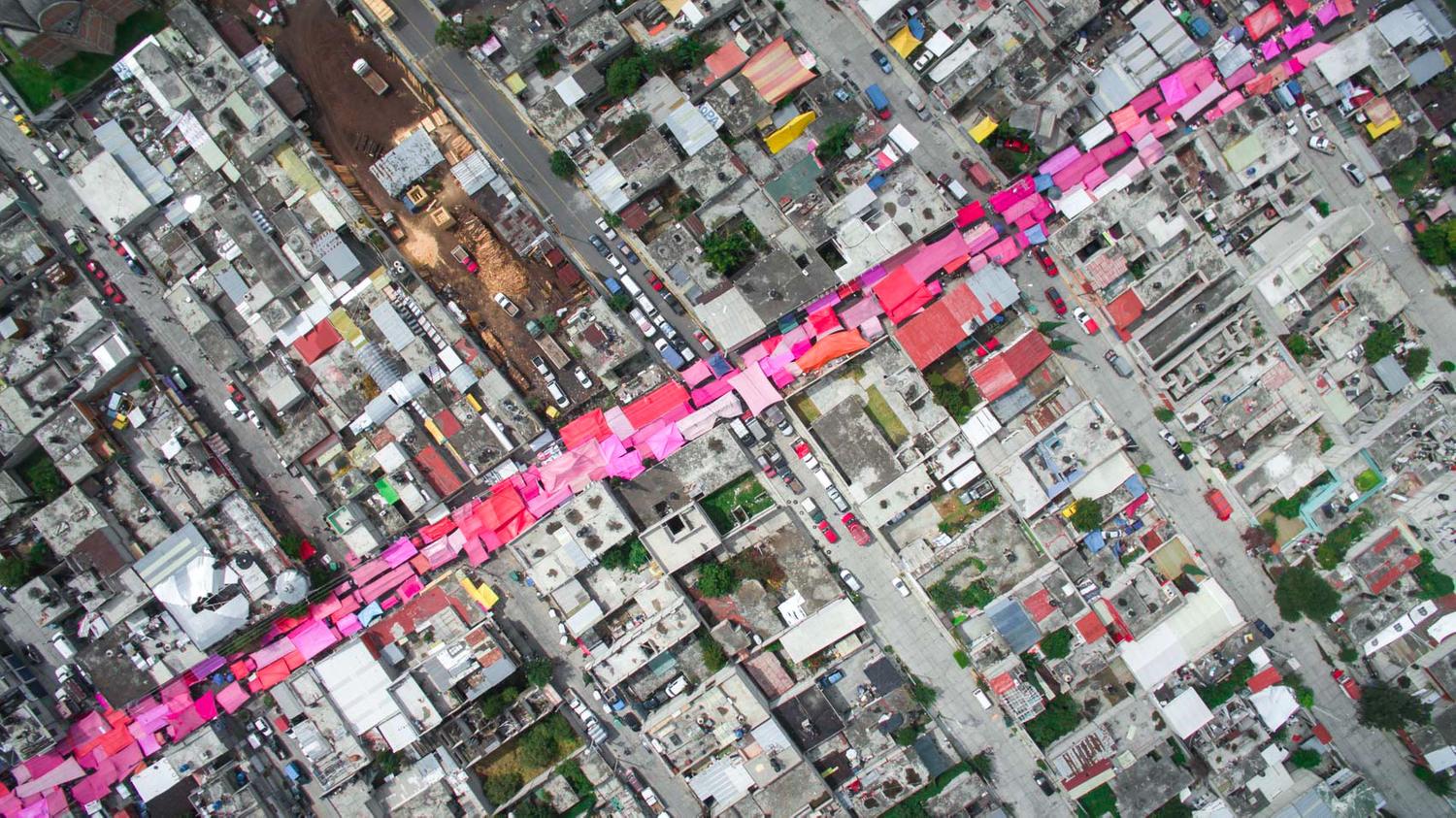
Liz Hernández depicts the itinerant markets of Mexico City, where the pink canopies cast a rosy glow over vendors’ goods, often cut into sculptural objects for display. She describes stepping into the market, within a bustling city and yet so far removed that it becomes a self-contained world, a privilege to those who exist in that space. Oasis-like, Hernández’s market offers a shift in perspective, where food is an expression of artistry.
Written by Ellen York and Liz Hernández.

"Comer relaciona (y confronta) mundos"
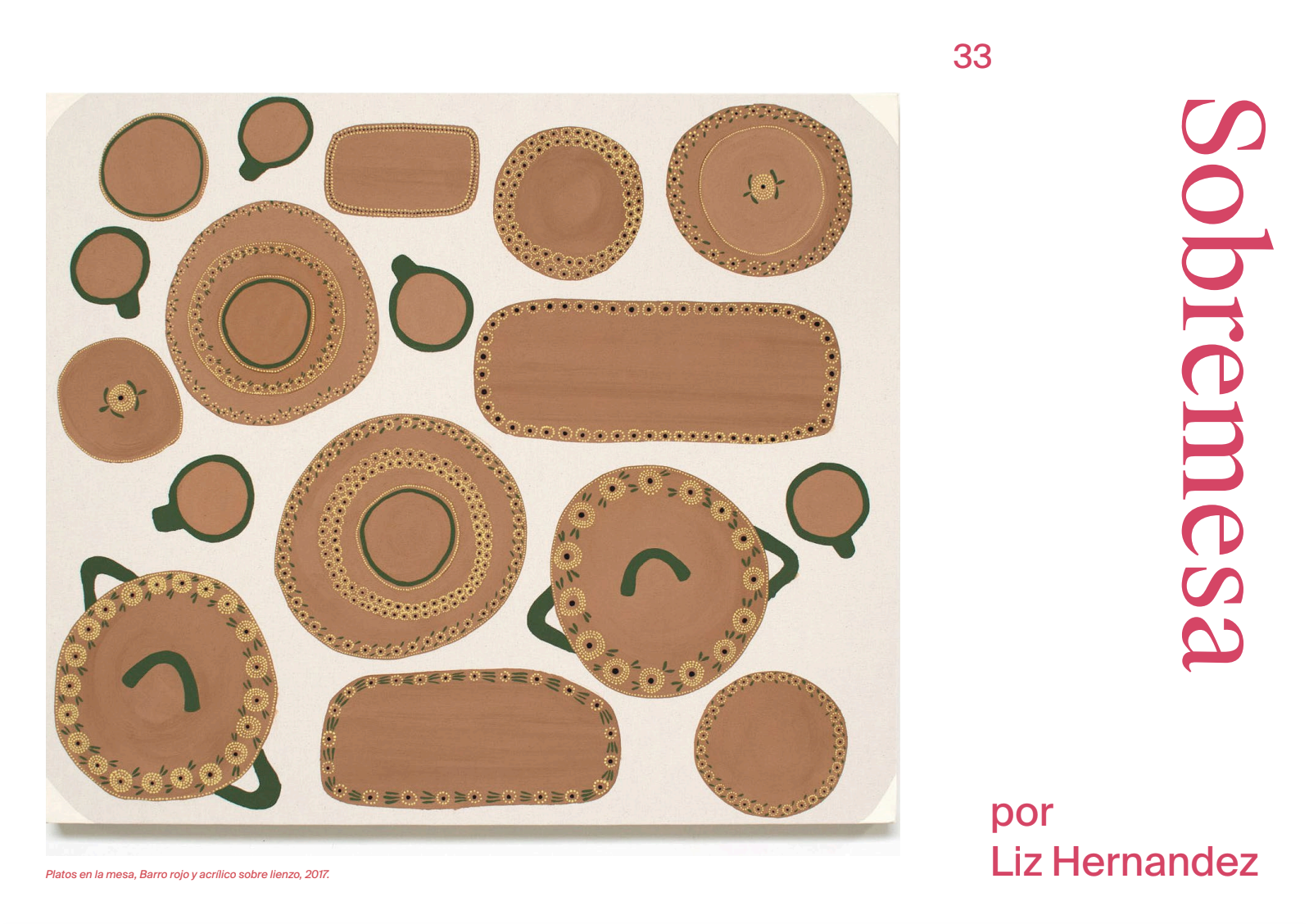
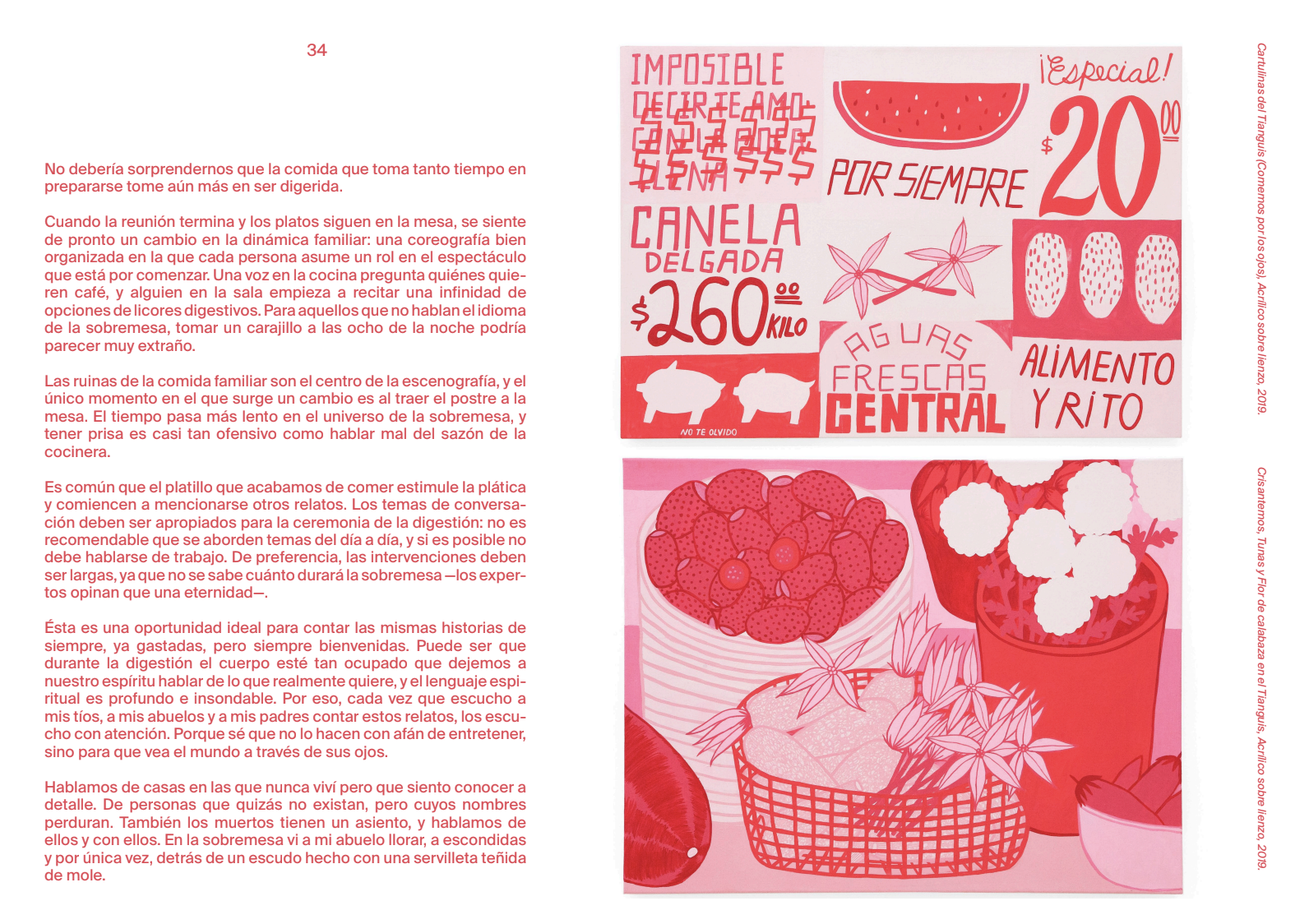
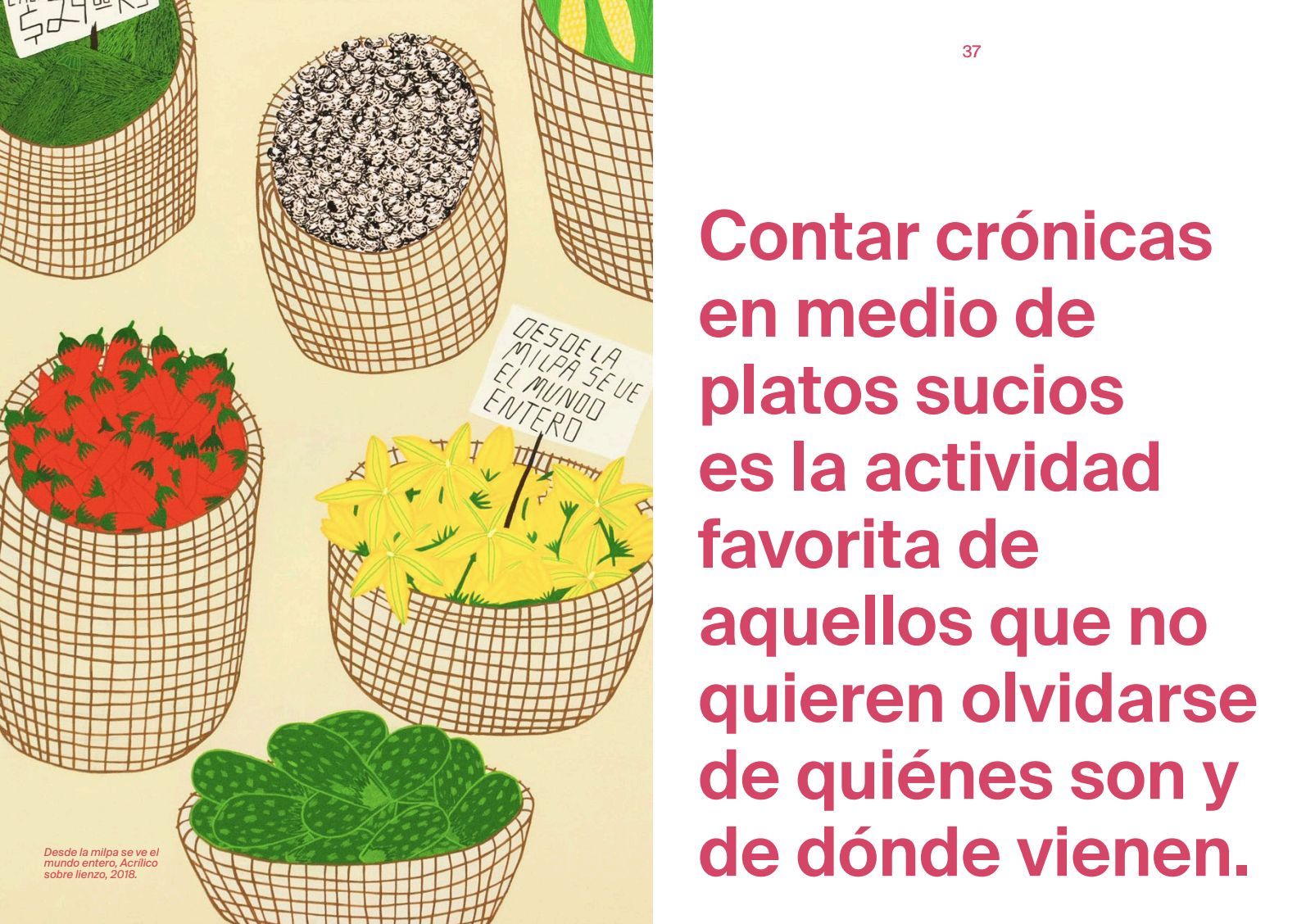

The book “Eating relates (and confronts) worlds” is published by the Cultural Center of Spain in Mexico and edited by Valeria Mata. This publication explores various dimensions of eating from different fields of knowledge and action, such as the visual arts, anthropology, political ecology, cooking, curation, activism, literature or history. From stimulating glances, a group of different authors (s) and groups from Ibero-America reflect on a theme that runs through us all.
The five hundred year anniversary of the Spanish conquest was the trigger to start working on this project. With the publication of this collective volume, we contribute to continue with this very current and necessary conversation, directing attention to the role of food as a mediating element that can promote forms of coexistence and solidarity, but also generate confrontations and disputes.
Esta publicación explora varias dimensiones del comer desde distintos campos del conocimiento y la acción, como las artes visuales, la antropología, la ecología política, la cocina, la curaduría, el activismo, la literatura o la historia. Desde miradas estimulantes, un grupo de distintas autoras(es) y colectivos de Iberoamérica, reflexionan sobre un tema que nos atraviesa a todas y todos.
Los quinientos años de la conquista fueron el detonante para comenzar a trabajar en este proyecto. Con la publicación de este volumen colectivo, contribuimos a seguir con esta conversación tan actual y necesaria, dirigiendo la atención hacia el papel de la comida como elemento mediador que puede promover formas de convivencia y solidaridad, pero también generar confrontaciones y disputas.
The five hundred year anniversary of the Spanish conquest was the trigger to start working on this project. With the publication of this collective volume, we contribute to continue with this very current and necessary conversation, directing attention to the role of food as a mediating element that can promote forms of coexistence and solidarity, but also generate confrontations and disputes.
Esta publicación explora varias dimensiones del comer desde distintos campos del conocimiento y la acción, como las artes visuales, la antropología, la ecología política, la cocina, la curaduría, el activismo, la literatura o la historia. Desde miradas estimulantes, un grupo de distintas autoras(es) y colectivos de Iberoamérica, reflexionan sobre un tema que nos atraviesa a todas y todos.
Los quinientos años de la conquista fueron el detonante para comenzar a trabajar en este proyecto. Con la publicación de este volumen colectivo, contribuimos a seguir con esta conversación tan actual y necesaria, dirigiendo la atención hacia el papel de la comida como elemento mediador que puede promover formas de convivencia y solidaridad, pero también generar confrontaciones y disputas.

